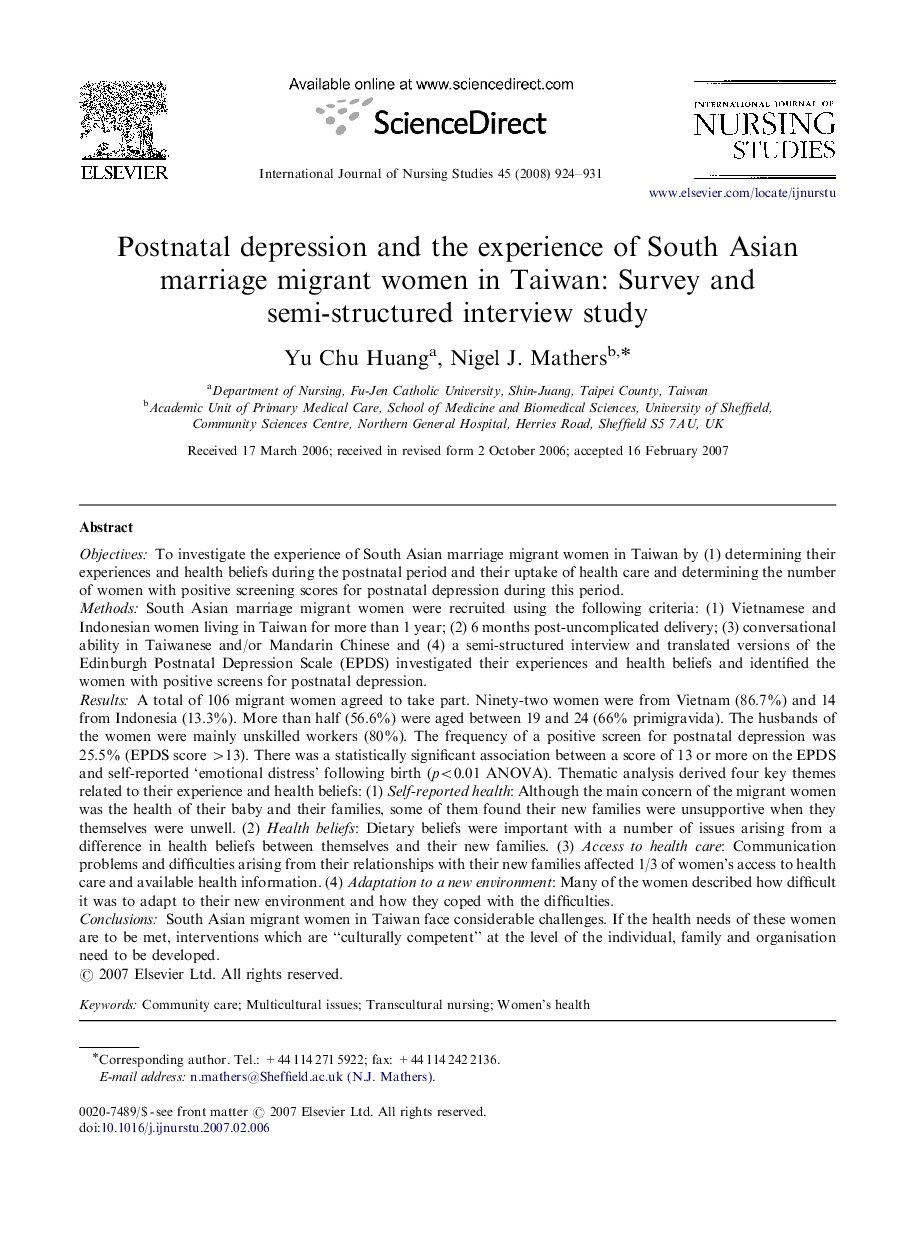| کد مقاله | کد نشریه | سال انتشار | مقاله انگلیسی | نسخه تمام متن |
|---|---|---|---|---|
| 1077817 | 1486607 | 2008 | 8 صفحه PDF | دانلود رایگان |

ObjectivesTo investigate the experience of South Asian marriage migrant women in Taiwan by (1) determining their experiences and health beliefs during the postnatal period and their uptake of health care and determining the number of women with positive screening scores for postnatal depression during this period.MethodsSouth Asian marriage migrant women were recruited using the following criteria: (1) Vietnamese and Indonesian women living in Taiwan for more than 1 year; (2) 6 months post-uncomplicated delivery; (3) conversational ability in Taiwanese and/or Mandarin Chinese and (4) a semi-structured interview and translated versions of the Edinburgh Postnatal Depression Scale (EPDS) investigated their experiences and health beliefs and identified the women with positive screens for postnatal depression.ResultsA total of 106 migrant women agreed to take part. Ninety-two women were from Vietnam (86.7%) and 14 from Indonesia (13.3%). More than half (56.6%) were aged between 19 and 24 (66% primigravida). The husbands of the women were mainly unskilled workers (80%). The frequency of a positive screen for postnatal depression was 25.5% (EPDS score >13). There was a statistically significant association between a score of 13 or more on the EPDS and self-reported ‘emotional distress’ following birth (p<0.01 ANOVA). Thematic analysis derived four key themes related to their experience and health beliefs: (1) Self-reported health: Although the main concern of the migrant women was the health of their baby and their families, some of them found their new families were unsupportive when they themselves were unwell. (2) Health beliefs: Dietary beliefs were important with a number of issues arising from a difference in health beliefs between themselves and their new families. (3) Access to health care: Communication problems and difficulties arising from their relationships with their new families affected 1/3 of women's access to health care and available health information. (4) Adaptation to a new environment: Many of the women described how difficult it was to adapt to their new environment and how they coped with the difficulties.ConclusionsSouth Asian migrant women in Taiwan face considerable challenges. If the health needs of these women are to be met, interventions which are “culturally competent” at the level of the individual, family and organisation need to be developed.
Journal: International Journal of Nursing Studies - Volume 45, Issue 6, June 2008, Pages 924–931